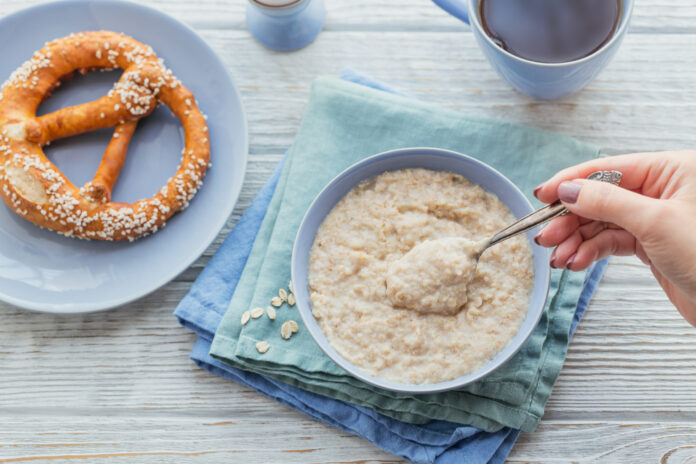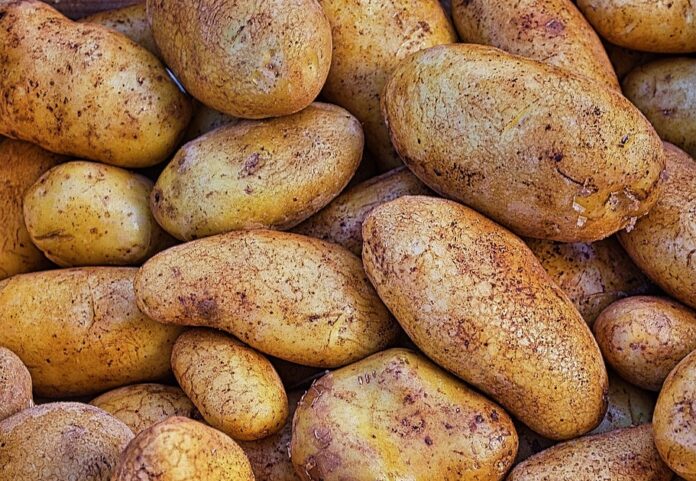If there’s one thing that you can almost always expect with the advent of every new year, it’s an increased focus on health and fitness. Some of the most contested topics online deal with foods that are best for weight loss. Among all foods, carbohydrates are often portrayed as the main cause of weight gain. While this is true to an extent, carbs are not as bad as most people believe. In fact, even in a weight-loss diet, carbs play an important role in maintaining a healthy dietary balance. Here are some common carb intake myths that could be ruining your weight loss project.

Myth #1: Carbs Make You Gain Weight
Even healthy food will cause weight gain when eaten in excessive amounts. Carbs are an important part of any healthy diet. The trick is to pick the type and quality of the carbs you consume. For example, you can pick whole grains instead of refined grains. If you really must eat rice, you might want to consider choosing higher quality rice like the ones found in RiceSelect instead of those of lower quality. Higher quality carbs are much more filling and they provide more nutrients, which means that you don’t have to eat as much to feel satiated.
Myth #2: Carbs Shouldn’t Be Eaten At Night
Carbs are processed by your body in the same way, regardless of the time of day. Portion size and carb quality will still serve as the primary determinant of whether you gain weight or not.
The timing of your consumption of carbs is more important when you also consider when you’re about to exercise. Never eat food right before a workout session, as it will cause your body to supply blood to your digestive system as well as your muscular system. This effectively means that your body won’t be able to digest the food properly, and it won’t be able to supply your muscles with sufficient blood to properly and safely perform your workouts. As a general rule, only eat at least two hours before your workout session.

Myth #3: Low Carb Diets Are the Most Effective Fat-Loss Diets
A low carb diet may seem effective for the simple reason that your weight decreases quickly. The weight reduction is not necessarily from a reduction of fat, but rather, it is merely a reduction in water weight. Low carbs diets are also very difficult to maintain as carbs are necessary to fuel your muscles with ATP.
By limiting carb intake, you are depriving your body of an essential energy source, and the moment you reintroduce carbs into your diet, the weight you shed will just as easily return. Plan your diet carefully to determine what kind of nutrition you need.
Myth #4: Fruit Carbs As Bad As Those From Processed Foods
The carbs found in fruits come in the form of natural sugar (fructose), which is significantly different from the added sugar found in processed food (glucose). Added sugars are what greatly increase your caloric intake, and they have been proven to be one of the main causes of unwanted weight gain. These added sugars can be found in sodas, sweets, snacks, and even processed juices. Most nutritionists will recommend that consumers limit their consumption of added sugars to less than 10% of their daily caloric intake.
Fruit is an essential part of a healthy diet, even with its sugar content. Fruits contain fiber which not only helps improve your digestive health, but it also makes your food feel more filling. Fruits are also full of antioxidants, vitamins, and minerals. There’s no good reason to omit fruits from your diet.

Myth #5: You Can Eat As Much As You Want
Carbs only become fat if they aren’t burned. It is on this premise that people have surmised that as long as you’re able to burn the carbs you consume, you’re free to eat as much food as you want. This is counter-intuitive to people who are trying to lose weight, as the first requirement needed for your body to start losing weight is to maintain a caloric deficit.
Any food that is consumed in excess will eventually become fat. It’s still important to maintain a balance between your food intake and your physical exertion. If you eat too little, you won’t have the energy to support your workouts. If you eat too much, the unburned carbs become fat. The best approach is to determine what your daily recommended caloric intake is, and to eat just below that threshold. You may even be far better off by consulting a dietician to help you plan out your meals.
Myth #6: Eating Too Many Carbs Will Make You Feel Sluggish and Lazy
After eating a big portion of food, we tend to feel sleepy and sluggish afterwards. This is true for all types of food, and this sluggishness is caused by the brain signals that are triggered upon reaching satiation. “Food comas” are also caused by the protein and salt content in your food.

Myth #7: Protein Is More Important Than Carbs
While protein is an essential nutrient for people who live active lifestyles, carbs cannot be ignored in favor of them. Diets that are higher in carbs than in protein are recommended for people who want to jump start their metabolism. Protein and carbs work together to help the body process sugar efficiently, and they also help prevent glucose spikes after a meal. This also means that an all-meat diet will not provide your body with the nutrients that are essential for a toned and strong body.
Losing weight requires commitment and discipline, but it also requires that you arm yourselves with the correct information. While there are many other misconceptions about carb intake, these are by far the ones that have the most significant impact on your weight loss. Always keep in mind that the body needs balance.





![Calgary’s Hottest Neighborhoods for Luxury Homebuyers [2024]](https://thewashingtonote.com/wp-content/uploads/2024/04/Calgary-324x160.png)



